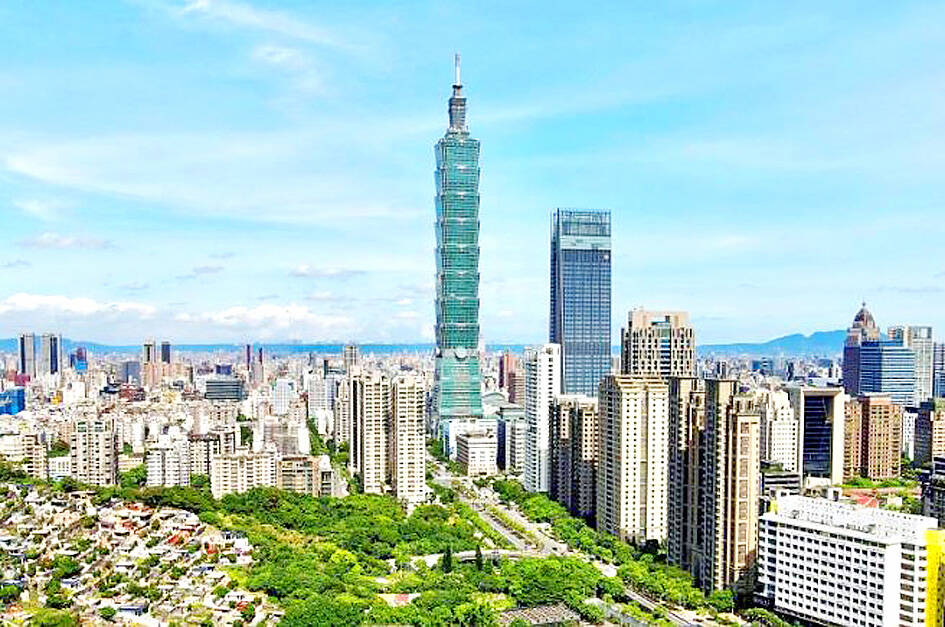Taiwan has again ranked third in Asia in the IMD 2023 World Talent Ranking, which measures the availability of workers with needed skills and the quality of local talent.
The IMD World Talent Report was published on Thursday last week by the Swiss-based International Institute for Management Development (IMD), ranking Taiwan No. 20 among the 64 economies evaluated. The nation dropped one place from No. 19 last year, and four places from No. 16 in 2021. It ranked behind Singapore in eight place and Hong Kong which placed16th.
The IMD report said that the results showed “the effects of the COVID-19 pandemic on the talent competitiveness landscape,” as many regions, including East Asia, “still display lower talent competitiveness in 2023 than in 2019.”

Photo: AFP
The National Development Council (NDC) said the IMD also reported a downturn in business confidence in some economies due to the relatively depressed global economic climate, which has resulted in sharper shifts in rankings.
IMD’s ranking system measures factors including “investment and development,” “appeal” and “readiness,” in which Taiwan is ranked 23rd, 21st and 19th respectively.
In the “appeal” category, or the extent to which a country is appealing to or able to tap into the overseas talent pool, Taiwan has moved up from last year’s 25th position to 21st this year. Of the 11 sub-factors in “appeal,” Taiwan is especially strong in “worker motivation” in which it is ranked fourth in the world.
The NDC said this shows the positive effect of the nation’s policies which were introduced during the COVID-19 pandemic to keep companies active and talent in the country.
Among the 12 sub-factors under “readiness,” or the availability of skills and competencies in the local talent pool, Taiwan’s strengths are in “graduates in sciences” and “educational assessment,” in which it placed seventh and eighth respectively.
The NDC said this reflects the efforts that have been put into training local talent; expanding science, technology, engineering and mathematics (STEM) departments, and setting up interdisciplinary digital technology programs.
However, what requires further attention are sub-factors such as “skilled labor,” “international experience” of senior managers, and “language skills” that meet the needs of enterprises, the NDC said.
Taiwan saw major declines in these categories compared with last year, falling 10, 13 and 10 places, respectively.
In the “investment and development” category, Taiwan ranked second in terms of “health infrastructure” and seventh in “employee training.”
The NDC said there is room for improvement regarding Taiwan’s talent readiness in a globalized era undergoing a digital transition.
Toward that end, the government’s Bilingual 2030 policy has been gradually implemented and research institutes in key fields and regional technical training bases have been established. They are aimed at meeting the needs of industrial development and preparing locally trained talent for the global market, the council said.
The government would continue upgrading the six core strategic industries — information and digital industries, cybersecurity, precision health, green and renewable energy, national defense and strategic industries, and strategic stockpile — and enhancing the quality and quantity of Taiwan’s local and foreign talent with policies, it said.

‘DENIAL DEFENSE’: The US would increase its military presence with uncrewed ships, and submarines, while boosting defense in the Indo-Pacific, a Pete Hegseth memo said The US is reorienting its military strategy to focus primarily on deterring a potential Chinese invasion of Taiwan, a memo signed by US Secretary of Defense Pete Hegseth showed. The memo also called on Taiwan to increase its defense spending. The document, known as the “Interim National Defense Strategic Guidance,” was distributed this month and detailed the national defense plans of US President Donald Trump’s administration, an article in the Washington Post said on Saturday. It outlines how the US can prepare for a potential war with China and defend itself from threats in the “near abroad,” including Greenland and the Panama

A magnitude 4.9 earthquake struck off Tainan at 11:47am today, the Central Weather Administration (CWA) said. The hypocenter was 32.3km northeast of Tainan City Hall at a depth of 7.3km, CWA data showed. The intensity of the quake, which gauges the actual effect of a seismic event, measured 4 in Tainan and Chiayi County on Taiwan's seven-tier intensity scale, the data showed. The quake had an intensity of 3 in Chiayi City and County, and Yunlin County, while it was measured as 2 in Kaohsiung, Nantou County, Changhua County, Taitung County and offshore Penghu County, the data showed. There were no immediate reports of

The Chinese Nationalist Party (KMT) is maintaining close ties with Beijing, the Democratic Progressive Party (DPP) said yesterday, hours after a new round of Chinese military drills in the Taiwan Strait began. Political parties in a democracy have a responsibility to be loyal to the nation and defend its sovereignty, DPP spokesman Justin Wu (吳崢) told a news conference in Taipei. His comments came hours after Beijing announced via Chinese state media that the Chinese People’s Liberation Army’s Eastern Theater Command was holding large-scale drills simulating a multi-pronged attack on Taiwan. Contrary to the KMT’s claims that it is staunchly anti-communist, KMT Deputy

RESPONSE: The government would investigate incidents of Taiwanese entertainers in China promoting CCP propaganda online in contravention of the law, the source said Taiwanese entertainers living in China who are found to have contravened cross-strait regulations or collaborated with the Chinese Communist Party (CCP) could be subject to fines, a source said on Sunday. Several Taiwanese entertainers have posted on the social media platform Sina Weibo saying that Taiwan “must be returned” to China, and sharing news articles from Chinese state media. In response, the Mainland Affairs Council (MAC) has asked the Ministry of Culture to investigate whether the entertainers had contravened any laws, and asked for them to be questioned upon their return to Taiwan, an official familiar with the matter said. To curb repeated